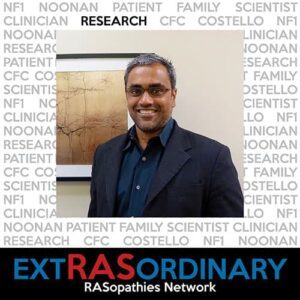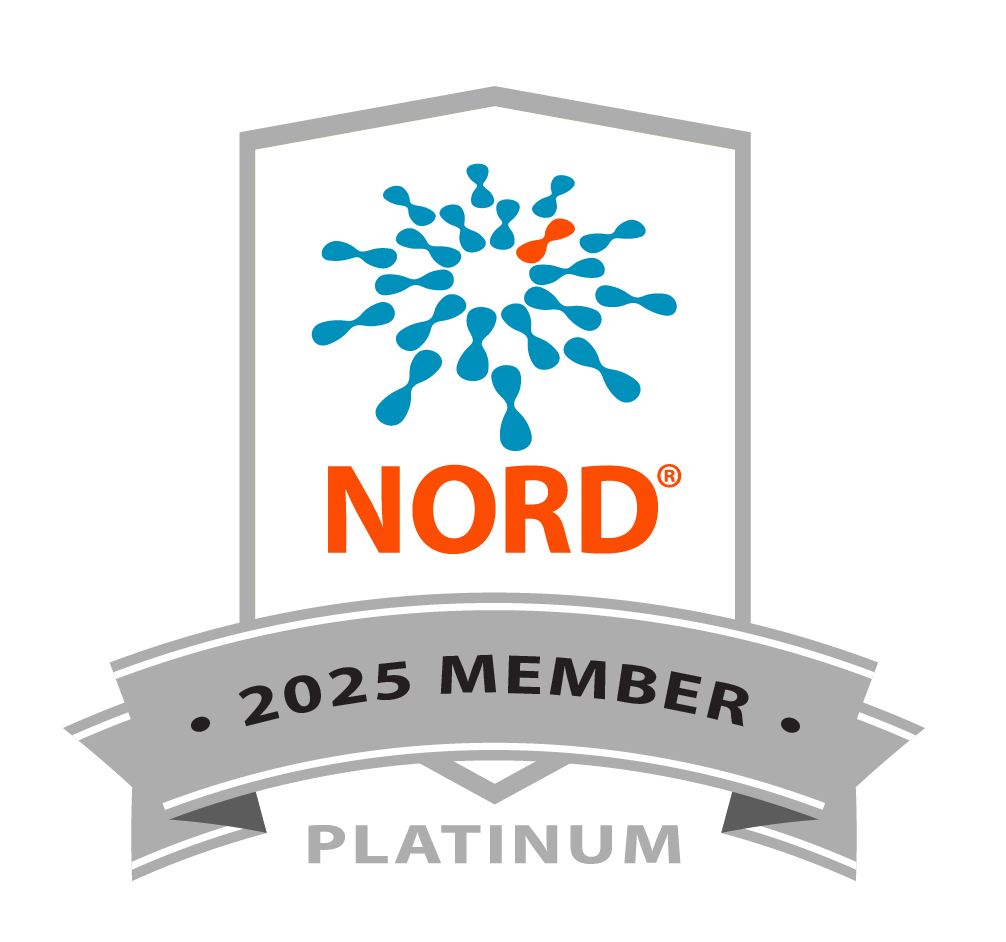Welcome to the EXTRASORDINARY Interview Series
This blog is a place to introduce you to extraordinary RASopathies patients, families, scientists, researchers, and clinicians! Be sure to scroll through to the bottom to read past entries.
 What is your education history?
What is your education history?
I got my Bachelors degree, which was in Biochemistry, from Delhi University in India. Subsequently, I moved to the US and performed my doctoral studies at the University of Maryland, School of Medicine, Baltimore. During this time, I worked on the regulation of a group of proteins that allow cells to handle calcium ions. After finishing my PhD in 2002, I moved across town to do a postdoctoral fellowship at the Johns Hopkins University. During this time, I started working with flies with a special emphasis on the development of the nervous system. After completing my fellowship at Hopkins in 2008, I remained there for two more years as a non-tenure track faculty member. In 2010, I joined University of Texas as faculty member on the tenure track.
How did you become a researcher?
Ever since childhood, I was interested in science. I could not imagine doing anything else. Becoming a researcher was natural. However, my love affair with research began in earnest when I started working on the PhD.
Why RASopathies?
The chair of my department here at UT, Dr. John Hancock, is a pioneer in Ras signaling, especially in the context of cancer. Consequently, he has built a department with many researchers that have peripheral interests in this field. When I came to Houston, I started combining my research background, which was in the endolysosomal biology with Ras signaling. Consequently, we found that manipulating the function of some endolysosomal proteins can very effectively mitigate signaling disturbances that have been pushed into overdrive in Rasopathies. Given the availability of drugs to target these pathways, we are asking whether these drugs could be suitable for patients suffering from Rasopathies.
What, as a researcher/doctor, interests you about rare disease?
From a purely research perspective, I feel that the insights gleaned from studying the pathophysiology of rare diseases are very informative regarding general biology. But even more significant are the close interactions with families and patient advocacy groups and the opportunity to make a real difference in the lives of patients and their families. Being able to put names and faces to the humans suffering from the diseases in an incredible motivator when research projects get complicated!
How has researching RASopathies impacted and/or changed your approach to research or clinical treatment?
Although my lab is relatively new to Rasopathies per se, we are already beginning to see real changes to our research agenda. For one, this grant from the foundation via Penn has allowed me to hire an outstanding postdoctoral fellow, Dr. Jewon Jung, who is working tirelessly on the project. Also, we are now trying to develop long-term projects along on understanding Ras biology in the context of both Rasopathies and cancer.
Have you personally connected with families? How and why is the personal connection significant for you?
I have been in touch a few family members, especially the mother of a child with Noonan syndrome. She informed us about a drug that could be of benefit in Rasopathies. It was upon her urging that Jewon tried this drug on our animal and cell models, and found a remarkable suppression of toxic signaling. We are now intensely focused on identifying the underlying mechanism. This line of inquiry would not have been possible without the input from this mother. I also look forward to building a long-term relationship with the families. I am sure there is a lot my lab can learn from the people who are caring for the children with Rasopathies on a daily basis!
Can you share a bit about your current research, specifically what the Rasopathies grant is funding.
As I mentioned above, my lab has been focused on trying to understand the biology of a cellular compartment referred to as endolysosomes, which are tiny vesicles (sacs) in cells that are responsible for breaking down and recycling cellular waste products. Over the course of the last few years, my lab has identified proteins that function in endolysosomes as being critical for the toxicity seen in Rasopathies. The idea is that cells with elevated Ras signaling become dependent on the function of these endolysosomal proteins such that inhibiting these proteins will attenuate the unregulated signaling cascades triggered by Ras in these patients. We are currently testing this model using animals and cells expressing Rasopathies-related gene variants.
How do you spend your free time?
Due to a busy schedule at work, I really don’t get much free time. Whatever free time I have, I spend it with my wife and 9 year old son. If time permits, I try to sneak in a hour at the gym every couple of days.




